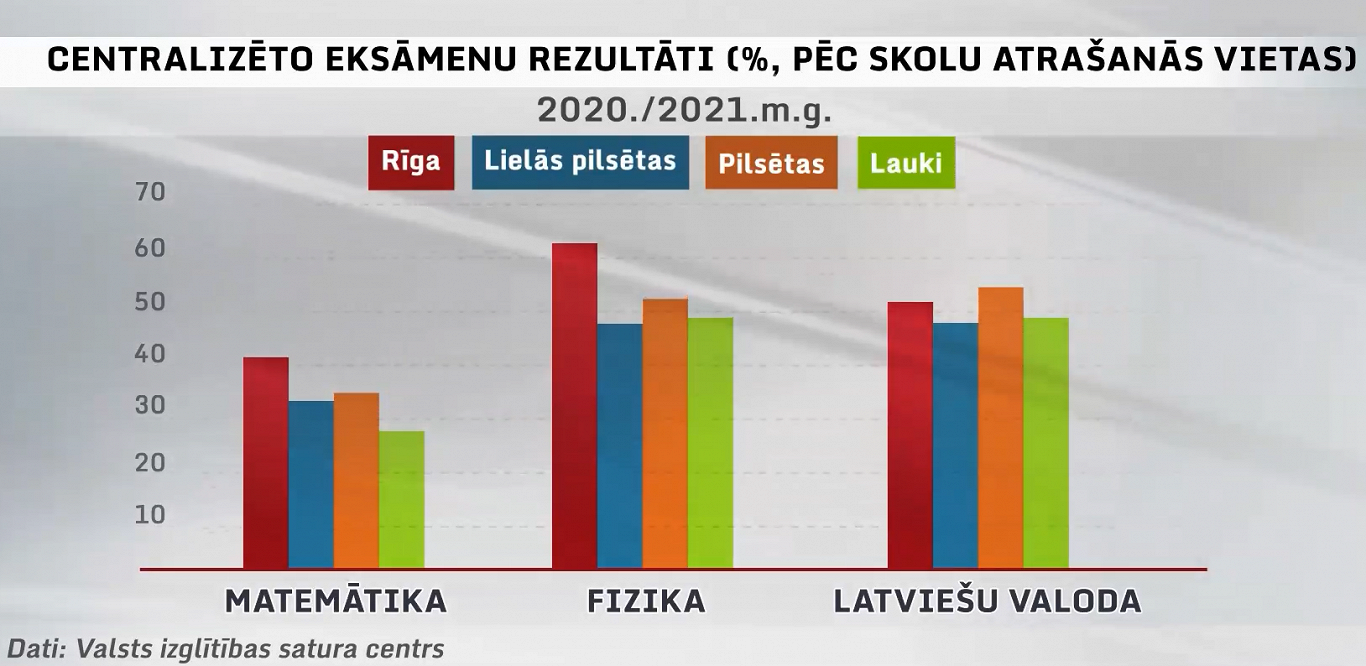In 2009, the average achievements of Latvian pupils in all content areas grew faster. At the moment, there is no growth.
“We've had statistically significant increases in math since the previous cycle in 2015. In math, we have ranked above the average of the OECD countries. In science, we are at the average level between the OECD countries and we are a little below in reading comprehension,” said Andris Kangro, Professor at the University of Latvia.
What is more worrying is the gap between the knowledge of rural and urban school students. For example, the results of centralized exams show a pronounced difference in math, physics, and chemistry, less in Latvian, as shown in the graph with data from the State Education Content Center. The red bar represents the average percentage of each subject in Rīga, the blue – in other big cities, orange – in smaller towns, and green – rurally.

“We have an extremely large dispersal in this respect. We have extremely good schools that are really world-class. Unfortunately, one part of these school graduates go to study abroad because they understand that there may not be such a broad and deep offer program in higher education. But we also have, unfortunately, schools where young people then have nothing to do with their lives. Well, and then there's the supermarket cash register, which certainly isn't interesting for a high-school graduate,” said Kārlis Šadurskis (New Unity), former education minister (2002–2004; 2016–2018).
In Latvia, a big problem is the aftermath of the former funding model “Money follows the pupil”, which allowed the big schools to attract better specialists. Rural schools had no such opportunity. This pattern was broken last year, but it is not yet possible to judge whether and how quickly it will solve the problem.
In addition, until 2021 in Latvia, when assessing the quality of education, the achievements of pupils were not taken into account at all. Then, a quality criterion was introduced. For the school to receive state funding, the centralized exam index cannot be lower than 40%.
At the same time, the State Service of Education Quality pointed out that the fact that the quality of school is assessed only by the achievements of pupils is wrong. It is also necessary to analyze, for example, how easily and quickly pupils reach school, whether teachers are sufficiently professional, whether children in school feel psychologically safe and whether, for example, parents are involved in supporting the learning process.




























